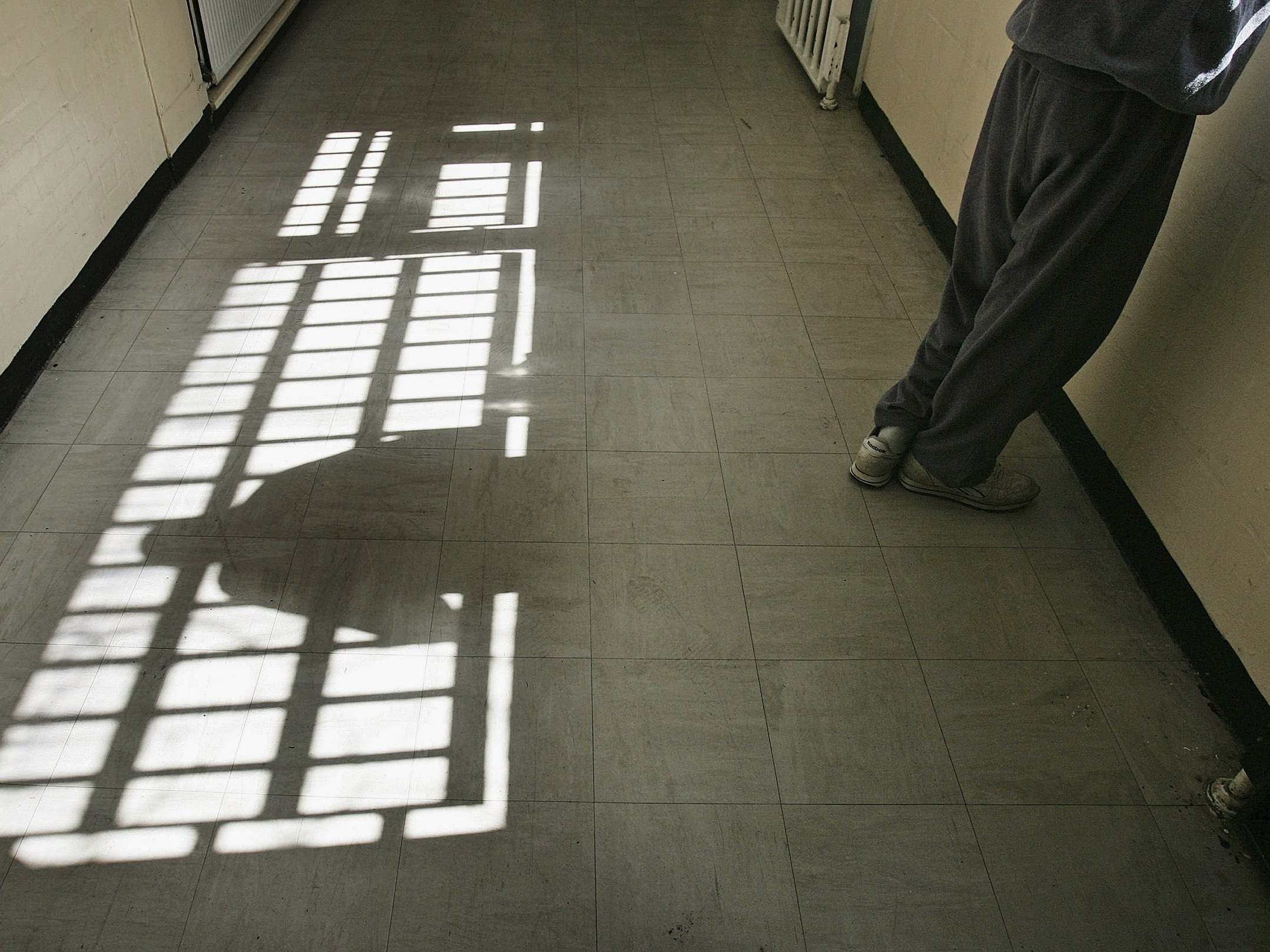'Totally unacceptable’: Children with Down's syndrome and autism left in court cells for hours, report finds
The treatment of vulnerable people is a 'matter of embarrassment', custody watchdog says

Your support helps us to tell the story
From reproductive rights to climate change to Big Tech, The Independent is on the ground when the story is developing. Whether it's investigating the financials of Elon Musk's pro-Trump PAC or producing our latest documentary, 'The A Word', which shines a light on the American women fighting for reproductive rights, we know how important it is to parse out the facts from the messaging.
At such a critical moment in US history, we need reporters on the ground. Your donation allows us to keep sending journalists to speak to both sides of the story.
The Independent is trusted by Americans across the entire political spectrum. And unlike many other quality news outlets, we choose not to lock Americans out of our reporting and analysis with paywalls. We believe quality journalism should be available to everyone, paid for by those who can afford it.
Your support makes all the difference.Children with Down's syndrome and autism were among those left for hours in court cells while they awaited legal representation or transport, according to a report.
The treatment of some young people including those with disabilities was branded “totally unacceptable” and a “matter of embarrassment” for the criminal justice system by custody watchdog the Lay Observers (LO).
An annual report from the body of volunteers tasked by ministers to inspect court custody conditions and transport arrangements for detainees in England and Wales warned youngsters and those with health problems were “falling through the gaps”.
As well as raising concerns about filthy cells and “complicated” transport arrangements made between police, courts and prisons, the report warned of poor record keeping of medical needs and a lack of sanitary items for female detainees in some cell blocks.
The conditions are putting the welfare of vulnerable people and access to justice in “jeopardy”, the report said, adding that the problems are “compounded” by poor communication between different bodies and authorities.
LO national chairman John Thornhill said the problems have a “concerning impact” on access to justice, adding: “It is clear some people have to appear in court having travelled hundreds of miles, others are not supported with their medical conditions or disabilities; some are then kept in dirty court cells for hours on end.
“This is a matter of embarrassment in a modern criminal justice system.”
The report described “dirty cells” with food and liquids “spattered up the walls” in some cases while others were “covered” in abusive graffiti some of which was racist or gang and drug related.
At Thames Magistrates' Court a “clearly coded message” was found in one cell.
The report cited a string of examples of poor treatment of young people and those with disabilities, including when a young boy with Downs' syndrome had to wait four hours to see his solicitor at Westminster Magistrates' Court due to a lack of available space.
The report said: “There did not appear to be any attempt to prioritise vulnerable DPs (detained persons).”
Mr Thornhill said transport arrangements “remain erratic in a worrying numbers of cases, with long delays waiting for vans to take detainees – including children – to and from prison or secure placements and very long journeys late at night”.
The report highlighted the “totally unacceptable” treatment of a 16-year-old girl who, after being sentenced in the late afternoon at Plymouth Magistrates' Court, was not moved from custody until 10pm to make a 235-mile (378-kilometre) journey to Rainsbrook Secure Training Centre near Rugby in Warwickshire, where she arrived at 3am.
During another incident a 14-year-old boy was held in a cell for 11 hours for an hour-long court hearing at Bradford Magistrates' Court before being driven away late at night.
The findings also describe how a young boy with autism reacted badly to being in a confined space, becoming “very emotional and unstable”, while waiting in a Southampton Magistrates' Court cell for more than two hours while transport was arranged.
There were also concerns raised about young people being transported in the same vehicle as adult offenders for long periods of time.
Although there had been welcome improvements in the past year and the majority of custody and escort staff were “doing their best to deliver a decent and respectful service often in difficult circumstances”, Mr Thornhill added: “Too many children and vulnerable adults have their welfare put at risk because of extremely poor record keeping, which leads to critical medication not being available for people with conditions like asthma and diabetes, the risk of violence to staff and other detainees.”
A Ministry of Justice spokesperson said the welfare of young and vulnerable people was a “priority”, adding: “New contracts which begin next month will place greater emphasis on improving decency and welfare for those in custody and minimise time in cells."
PA
Subscribe to Independent Premium to bookmark this article
Want to bookmark your favourite articles and stories to read or reference later? Start your Independent Premium subscription today.
Join our commenting forum
Join thought-provoking conversations, follow other Independent readers and see their replies
Comments